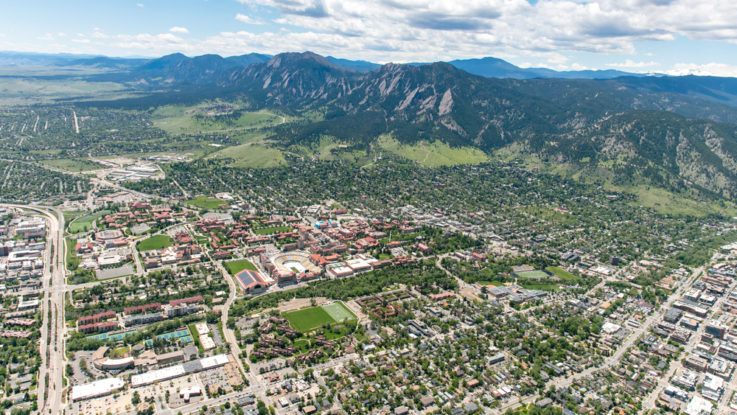
The Boulder City Council has unanimously approved its micro-mobility traffic ordinance. The ordinance adds to the types of micro-mobility devices that are allowed, defines where those devices can be used, and provides safety guidelines.
Bicycles and e-bikes are already allowed on multi-use paths, streets and bike lanes, and on sidewalks – except in dismount zones. Now, skateboards fall under these same rules. Previously banned e-scooters are now allowed on multi-use paths, on residential streets and in bike lanes, as well as on the sidewalk if no bike lane is present.
The city will require those using devices such as e-scooters and skateboards to use lights at night – either mounted on the device itself or on the person – and will implement new signage that emphasizes that all devices yield to pedestrians and electric ones yield to human-powered ones.
Boulder plans to implement a communications campaign called “Which Wheels Go Where” to help spread the information about where various modes of transportation are now allowed.
Members of the council noted that the transportation landscape is changing and there is a need for people to have access to more modes of transportation, particularly as they begin to return to work in person.
“The bottom line for us is that we’re trying to expand the range of transportation and mobility options that residents and workers in Boulder have access to at any time so that they have different alternatives in how they can move,” Director of Public Affairs Andrea Meneghel said.
The city has issued a request for proposals for a shared micro-mobility program for electric bikes and scooters. Currently, Boulder Bike Sharing – an independent nonprofit organization – has operated the Boulder B-Cycle bike sharing system. The city is considering a partnership with a private company for equipment, while maintaining Boulder Bike Sharing as the operator.